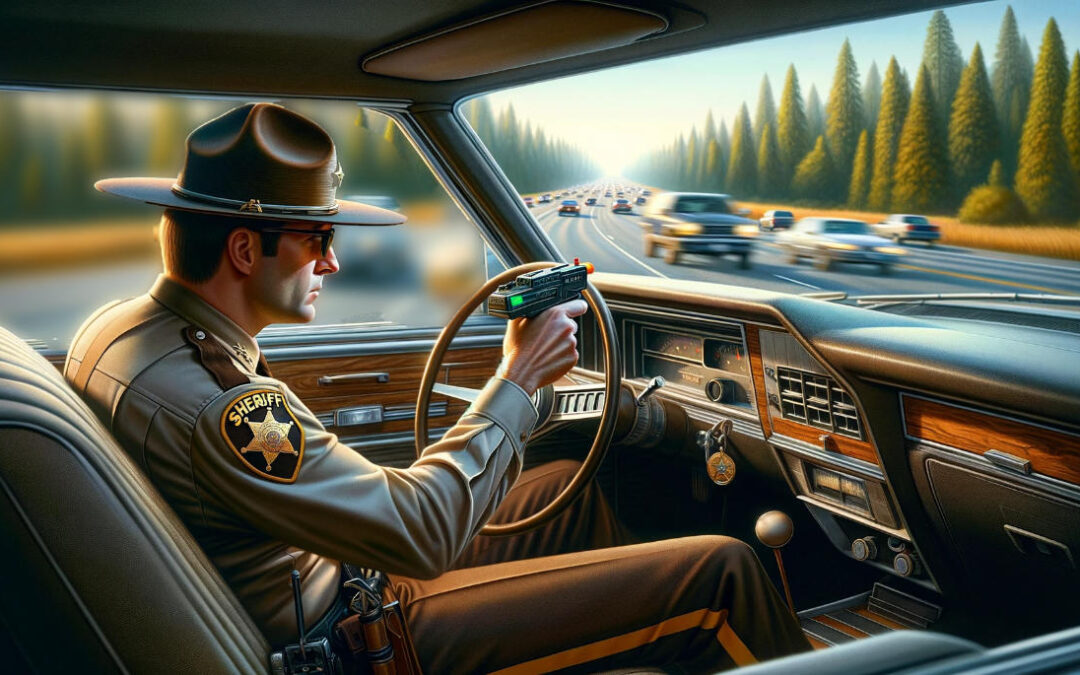In short, yes, but there are a few things you should understand about how these types of speeding tickets work.
First off, a radar reading is not in itself definitive proof of anything. Even when a law enforcement officer does have a radar reading, it’s a piece of evidence they can present in court that they ideally need to substantiate with other details and testimony.
For instance, officers can sometimes substantiate your speed by making other observations, such as “pace clocking” by following your car for some distance while monitoring his own speedometer. Another commonly used method, which is different from rader, is LiDAR (or laser scanning) – a method of speed detection by which a pulse of light is reflected off of an object (your vehicle) and the time it takes to reflect back is measured. Experienced officers sometimes estimate speed visually as well.
The law enforcement officer issuing the speeding ticket is required to state the method used to determine you were speeding on the ticket.
If you receive a speeding ticket without a radar reading…
Your first move should be to contact a traffic attorney. While it’s not illegal for an officer to issue a speeding ticket without a radar reading, the lack of that sort of evidence can aid in obtaining a favorable outcome when fighting the ticket.
These days it is becoming more and more common for drivers to have some form of speed tracking of their own, such as GPS-based apps. Many families have apps such as Life360 or Bouncie installed on their teen drivers’ devices. While these apps are not perfect, they do track speed and could be used as some evidence in defense of a speeding charge.
Any speeding ticket you mail in and plead guilty to can add points to your license. Even without enough points to jeopardize your license, one traffic violation could increase your auto insurance rates by up to 40%.
Simply pleading guilty is a quick decision that can have lasting consequences.
Hire a speeding ticket attorney with two decades of proven experience — from regions like Winston Salem to Wilkesboro and Boone.
The Highway 421 corridor between Winston-Salem and Boone spans four counties (Forsyth, Yadkin, Wilkes, and Watauga) and is used by plenty of out-of-town drivers passing through the area.
For those who are not local, there is a temptation to simply go online and pay the ticket instead of coming back for court. This is a bad idea, and can often have dire consequences for your license and insurance.
By hiring an experienced local attorney, you avoid the hassle and have the comfort of knowing the matter is being handled appropriately. An experienced attorney can usually resolve your ticket in a way that protects your license and insurance, and can sometimes even get it dismissed altogether. Mr. McElwee has over twenty years experience handling matters just like yours.
When you hire us, we typically handle everything for you and follow-up with the result. You simply go online and pay any court fees that are due. That’s it! Our goal is to handle your ticket professionally and make the process as easy for you as possible.
Call us today!
(336) 995-0060

Will McElwee has been a traffic attorney for over 25 years, and has established a solid track record helping folks from Boone and Wilkesboro to Winston Salem address traffic tickets. His family has a long and fruitful history in the area: the McElwee Law Firm began in 1932. Will’s grandfather, William H. McElwee, Jr., was a former president of the North Carolina Bar and sat on North Carolina’s Board of Law Examiners for many years.
As a “Double Deac,” Will attended Wake Forest University for both undergraduate and law school. He is a certified Superior Court and Family Financial Mediator and is also certified in the field of collaborative law.


